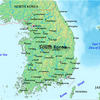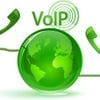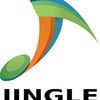 Vonage lays down the smackdown for Skype's refusal to adhere to Ofcom rules, an independent regulator and competition authority for the UK communications industries. Last month, Ofcom introduced rules mandating access to emergency services (999 in the United Kingdom) for VoIP providers whose customers make calls that connect to the public switched service. The rules also specify that caller address information is to be made available to emergency services so that, as far as possible, emergency service operators know where a call is originating from.
Vonage lays down the smackdown for Skype's refusal to adhere to Ofcom rules, an independent regulator and competition authority for the UK communications industries. Last month, Ofcom introduced rules mandating access to emergency services (999 in the United Kingdom) for VoIP providers whose customers make calls that connect to the public switched service. The rules also specify that caller address information is to be made available to emergency services so that, as far as possible, emergency service operators know where a call is originating from. Vonage points out that since it started offering services in the UK in 2005 that all Vonage customers have been able to dial 999. Vonage also makes available caller address information (CallerID) to emergency operators.
According to Vonage, "Skype is choosing to flout the new rules by claiming that they do not apply and that they could be harmful to public safety. Skype In and Skype Out services offer their customers calls that connect to the public switched service and are therefore caught by Ofcom's new rules." Vonage added, "Skype's statement that compliance could be harmful to public safety is in Vonage's view an abdication of social responsibility - especially when you consider that the telephone provided by Skype is designed to resemble a regular telephone. To deny consumers the ability to dial 999 is socially irresponsible and potentially very harmful."
Vincent Potier, Managing Director of Vonage UK comments: "This is an absurd position. How can refusing to allow customers to dial 999 in cases of emergency ever be in the interests of public safety? It is Skype that is causing harm to public safety, not Ofcom."
So who's right? Is Vonage simply making a stink to drum up some free publicity by attacking the #1 popular VoIP application? Is Vonage attacking Skype because Skype has millions more customers? Let's examine. First off, Ofcom explained that research revealed that as many as 78% of VoIP users who cannot use their service to call 999 thought they could, or did not know whether they could. As such, Ofcom set out to propose guidelines for 999 to ensure VoIP users were aware if they could or could not dial 999.
Ofcom stated in their rules, requiring only certain types of VoIP service providers to allow users to call 999 by early 2008. In Ofcom's list of VoIP service provider types it would appear that P2P apps, such as Skype is specifically EXCLUDED. However, Skype also falls under another VoIP type, 'VoIP Out' services, which would make them fall under Ofcom guideliness.
In March 2007, Ofcom put in place a code of practice that requires all VoIP providers to make it clear to consumers whether or not their service includes access to emergency services. From this code of practice statement, it does seem clear that Ofcom is asking Skype to at least make it clear to their customers that you cannot dial 999 using SkypeOut and expect emergency services to work.
Let me break out the four main types of VoIP services according to Ofcom's definition:
- 'Peer-to-peer' services that make and receive calls to other PCs and connected devices (Type 1);
- 'VoIP Out' services which allow users to make calls to ordinary phone numbers but not receive them (Type 2);
- 'VoIP In' services which allow users to receive calls from ordinary phone numbers but not make them (Type 3); and
- Full-service VoIP which allows users to make and receive calls to and from ordinary phone numbers (Type 4).
However, many Skype users have SkypeOut accounts and fall under Type 2, which requires providers of type 2 (and 4) services to offer access to emergency services. So it would appear Vonage is right.
Let's start with Type 1 Skype customers (P2P), which is the vast majority of Skype customers. How exactly would Skype go about notifying customers that they don't have emergency dialing? They could issue a popup statement the first time you launch Skype or maybe even the first 10 launches to cover any liability issues that 1 notification wasn't enough. Simple enough to do.
The issue with actually providing 999 access is much trickier. Skype is a mobile application, so even if you specify your home address, you could be in a London cafe when an emergency strikes.
Also, suppose I am a UK citizen but I'm travelling to the U.S. In the U.S. I dial 911 not 999. So if I dial 999 while in the U.S., should Skype still route the emergency call to the U.K. 999 emergency services? Obviously, there are problems with this. You would need to route the emergency call to the closest emergency services center and not across the Atlantic Ocean. Additionally, each country has their own emergency phone number. Routing a call to the closest emergency center using geocoding (by IP address) could be leveraged, but even that isn't perfect. It still wouldn't send accurate location information and it would could only send the call to a 911 emergency location center with an accuracy of 30+ miles.
VoIP Out services that are mobile (i.e. Skype, Jajah) and that are not fixed (i.e. Vonage, Packet8) need their own classification for Ofcom rules. Skype can't possibly offer 999. Maybe one day technology with solve this problem. While technically Vonage is right when you look at the "letter of the law" with regards to the Ofcom rules, Vonage knows full well Skype can't easily offer 999 services and it seems to me that they're using the battering ram of FUD to scare British citizens into signing up for their services instead.













